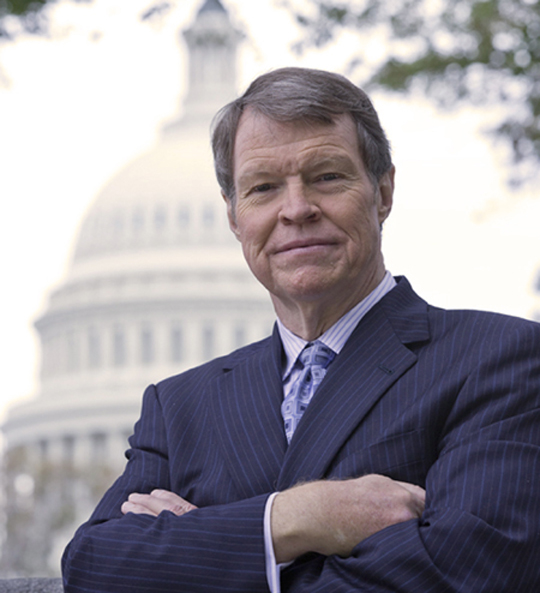
Merrill Matthews, Ph.D., is a resident scholar with the Institute for Policy Innovation, a research-based, public policy “think tank.” He is a health policy expert and opinion contributor at The Hill. He also serves on the Texas Advisory Committee of the U.S. Commission on Civil Rights.
Dr. Matthews is a past president of the Health Economics Roundtable for the National Association for Business Economics, the largest trade association of business economists. Dr. Matthews also served for 10 years as the medical ethicist for the University of Texas Southwestern Medical Center’s Institutional Review Board for Human Experimentation, co-author of On the Edge: America Faces the Entitlements Cliff, and has contributed chapters to several books, including Physician Assisted Suicide: Expanding the Debate and The 21st Century Health Care Leader and Stop Paying the Crooks (on Medicare fraud).
He has been published in numerous journals and newspapers, including The Wall Street Journal, Investor’s Business Daily, Barron’s, USA Today, Forbes magazine and the Washington Times. He was an award-winning political analyst for the USA Radio Network.
Dr. Matthews received his Ph.D. in Humanities from the University of Texas at Dallas.
Patent Protection for Me, But Not for You
Groups such as Business for Affordable Medicine (BAM) wants to reform the 1984 Hatch-Waxman Act in order to get access sooner to cheaper generic drugs. However, those efforts could weaken drug manufacturers’ patents. Interestingly, BAM members also have patents, and they defend those patents if another company tries to infringe them. In particular, GM complains that it has to spend money fighting the expansion of imitation parts — just like the drug manufacturers. Is the intellectual property of pharmaceutical companies less important than the intellectual property of member companies of Business for Affordable Medicine?
Do as I Say, Not as I Do: Big Corporations’ Quest to Limit Drug Advertising
General Motors and thousands of other companies do it, but many want to prohibit drug manufactures from advertising direct-to-consumer (DTC) because it increases costs. However, GM is the top advertiser in the country and its cars are still competitively priced. DTC advertising reaches out to people with medical conditions encouraging them to see their doctor, which leads to healthier and more informed patients.
Prescription Drug Payola
No Risky Scheme: Retirement Savings Accounts that are Personal and Safe
One of President Bush’s most controversial campaign proposals was to let workers place a portion of their Social Security payroll tax into a personal account. Can such accounts avoid the risk associated with the stock market? Twenty years ago, three Texas counties opted out of Social Security and they have never lost a dime. These counties provide a real, working model for personal accounts that are as safe as a bank.
No Risky Scheme: Retirement Savings Accounts that are Personal and Safe
One of President Bush’s most controversial campaign proposals was to let workers place a portion of their Social Security payroll tax into a personal account. Can such accounts avoid the risk associated with the stock market? Twenty years ago, three Texas counties opted out of Social Security and they have never lost a dime. These counties provide a real, working model for personal accounts that are as safe as a bank.
Retirement Savings Accounts as Safe as Your Bank
Social Security can be privatized and deliver market returns with virtually no risk to workers by allowing financial institutions to make asset allocation decisions rather than workers. Employees from three Texas counties have had such accounts for 20 years and have dramatically outperformed Social Security without risk. These plans can be a national model for Social Security reform without risk.
Navigating the Internet Tax Debate
Several state organizations are promoting a new, "simplified" state sales tax system in order to tax e-commerce. While the current moratorium doesn’t prohibit states from collecting taxes within their own borders, it does prohibit them from creating new and discriminatory taxes. The Founding Fathers wanted states to compete against each other, even in taxation. Extending or making the current moratorium permanent would coincide with the Founders’ principles of federalism.
Who's Afraid of Pharmaceutical Advertising?
As the market for prescription drugs becomes more competitive, consumers have more choices of high-quality drugs at reasonable prices. It is competition and DTC advertising — not government regulation — that enables the choices and will enhance the benefits. If legislators and health policy experts want to ensure that more drugs are available at lower prices, they should consider policies that encourage advertising and competition. We have no reason to fear advertising; what we should fear is the people who want to control it.
Ending the Social Security Earnings Limit--For Everyone
In 2000 Congress ended the Social Security retirement earnings test for retirees 65 years and older, but the earnings test remains for early retirees ages 62-64. This Issue Brief lays out the case for eliminating the retirement earnings test for all retirees.


